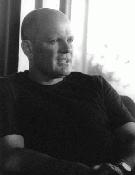
S
SUBSCRIBEU
UNSUBSCRIBE
E
POST AN EVENTN
POST NEWS | ACTIONL
POST LINK?
POST A DOESANYBODY KNOW?
QUESTION
Ghost Lab 13: Plotting a New Course for Architecture
From Issue No. 173 | February 27, 2011
A conference organized by Brian MacKay-Lyons aims to push locavore design to the forefront.
In lieu of his annual "Ghost Lab" design-build workshops, MacKay-Lyons will host a summer conference at his Nova Scotia farm.
In the summer of 1994, Nova Scotia architect Brian MacKay-Lyons and a teaching colleague, Richard Kroeker, took their students at Dalhousie University in Halifax to MacKay-Lyons’s farm and taught them how to actually build a structure with their own hands. It was the first “Ghost Lab,” so named because the land’s rocky ruins mark the ghost of a village, a European settlement from more than 400 years ago.
To register: http://www.mlsarchitects.ca/ghost/apply/
Keynote Speakers
Kenneth Frampton, New York
Juhani Pallasmaa, Finland
Speakers
Deborah Berke, New York
Marlon Blackwell, Arkansas
Wendell Burnette, Arizona
Ted Flato, San Antonio
Andrew Freear, Alabama
Vincent James, Minnesota
Rick Joy, Arizona
Francis Kéré, Berlin and Burkina Faso
Richard Kroeker, Nova Scotia
Tom Kundig, Seattle
Brian MacKay-Lyons, Nova Scotia
Patricia Patkau, Vancouver
Dan Rockhill, Kansas
Brigitte Shim, Toronto
Peter Stutchbury, Sydney
Critics
Peter Buchanan, London
Tom Fisher, Minnesota
Robert McCarter, St. Louis
Moderators
Essy Baniassad, Hong Kong
Robert Ivy, Washigton, D.C.
Christine Macy, Nova Scotia
Since then, as MacKay-Lyons has gained an international following for his “plain modern” architecture, his hands-on Ghost Lab has grown into a kind of elite and magical summer camp. Architects and critics from as far away as Australia have made the pilgrimage to the roughly 60-acre farm, spectacularly sited along the rugged Nova Scotia coast, where they join two dozen students who collectively design and construct a building using the vernacular materials and techniques of the local barns, boats, and fishing huts. The idea isn’t to ape the past but to embrace the venerable notion of the master builder, along with the ethics of good craftsmanship and sensitivity to the land and the community.
Now Ghost Lab is opening up to a larger audience, though anyone who’d like to attend this summer can leave his or her tool belt at home. From June 14-17, MacKay-Lyons will host a conference instead, for 200 people, to explore the ideas that have emerged from the design-build workshops and from his architectural practice. “The conference is about the same themes as Ghost Lab—the connection to place, to craft, to community,” said MacKay-Lyons, speaking on the phone from his farm, an-hour-and-quarter drive from Halifax. (Outside, he said, he could see sheep grazing on the windswept hill.) While the first and simplest Ghost Lab structures were temporary, those designed and built since 2005 have become part of the farm’s infrastructure, including four cedar-shingled cottages, a 90-foot-long studio clad in corrugated metal, and a reconstructed 1880s octagonal barn, where much of the conference will take place.







